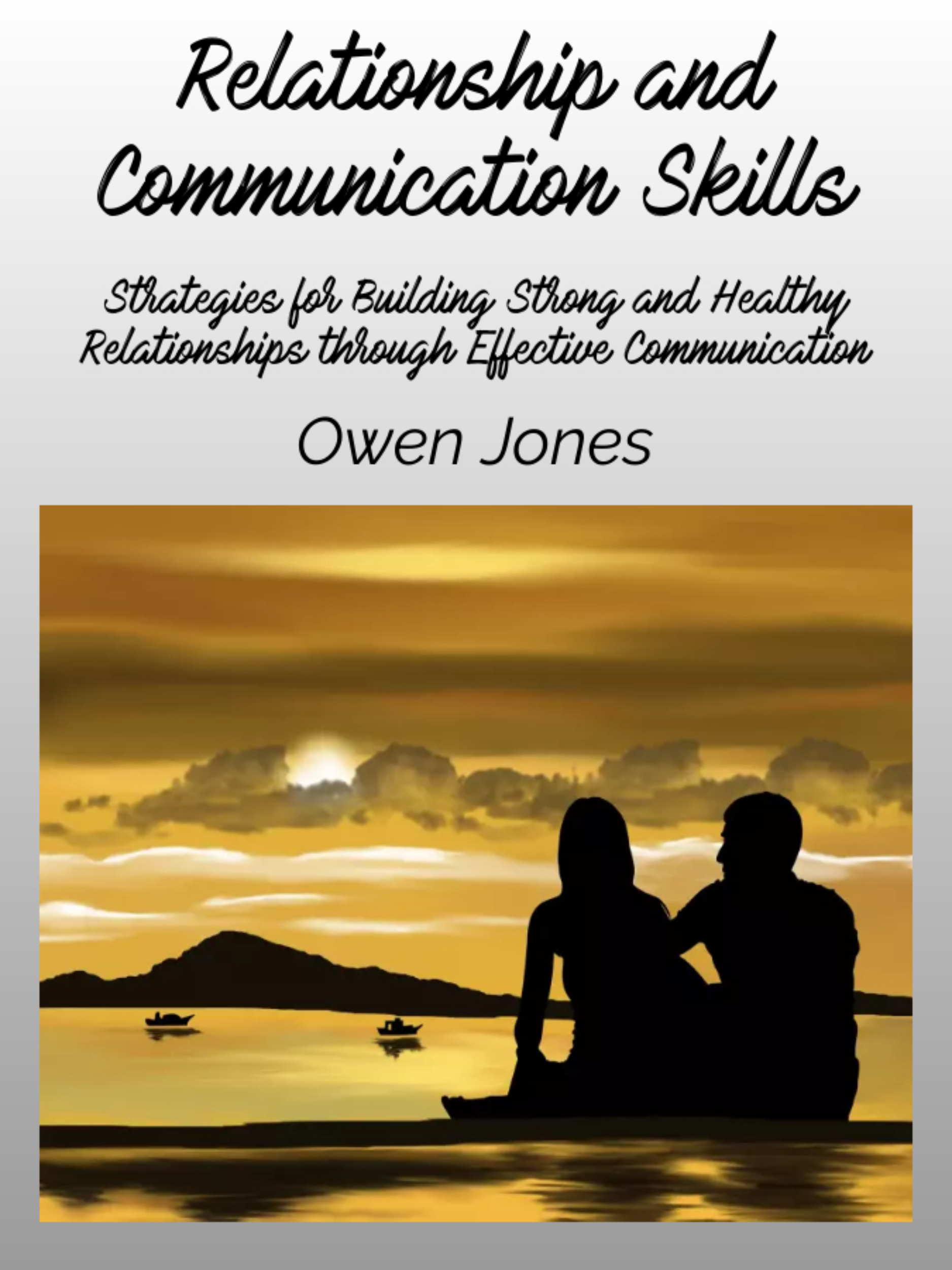
This book, "Relationship and Communication Skills," is designed to help you develop the tools and techniques you need to build and maintain healthy relationships. From understanding the fundamentals of communication to navigating cultural differences and managing conflict, this book offers practical advice and real-world examples to help you become a more effective communicator and build stronger, more fulfilling relationships.
Throughout the book, you'll learn how to improve your communication skills, recognise and manage your emotions, build empathy and active listening skills, and develop assertiveness in your communication style. You'll also explore strategies for resolving conflict, building trust, and fostering intimacy and connection through effective communication.
Whether you're looking to improve your romantic relationships, strengthen your friendships, or enhance your professional collaborations, this book will provide you with the tools and insights you need to succeed. With its practical approach and focus on real-world examples, "Relationship and Communication Skills" is an essential resource for anyone looking to build and maintain healthy, meaningful relationships in today's fast-paced world.
Genre: SELF-HELP / Communication & Social SkillsUnderstanding the Fundamentals of Communication in Relationships
Effective communication is the foundation of any successful relationship. Whether it's a romantic partnership, a friendship, or a professional collaboration, our ability to communicate with one another plays a critical role in determining the quality and longevity of our relationships. In this chapter, we'll explore the fundamentals of communication in relationships, including the key components of effective communication and the barriers that can prevent us from communicating effectively.
The Components of Effective Communication
Effective communication involves much more than just exchanging words or information with another person. It requires a combination of verbal and non-verbal communication, active listening, empathy, and mutual respect. Here are some of the key components of effective communication in relationships:
Verbal Communication: Verbal communication involves the use of words to convey a message. This can include spoken language, written communication, or even sign language for those who are deaf or hard of hearing.
Non-verbal Communication: Non-verbal communication includes facial expressions, body language, gestures, and tone of voice. These non-verbal cues can convey important information about how we're feeling and what we mean beyond the words we're saying.
Active Listening: Active listening is the act of fully engaging with another person during a conversation. This involves giving the person our full attention, asking clarifying questions, and summarizing what they've said to ensure that we've understood their message correctly.
| Language | Status |
|---|---|
|
Dutch
|
Already translated.
|
|
Spanish
|
Already translated.
|